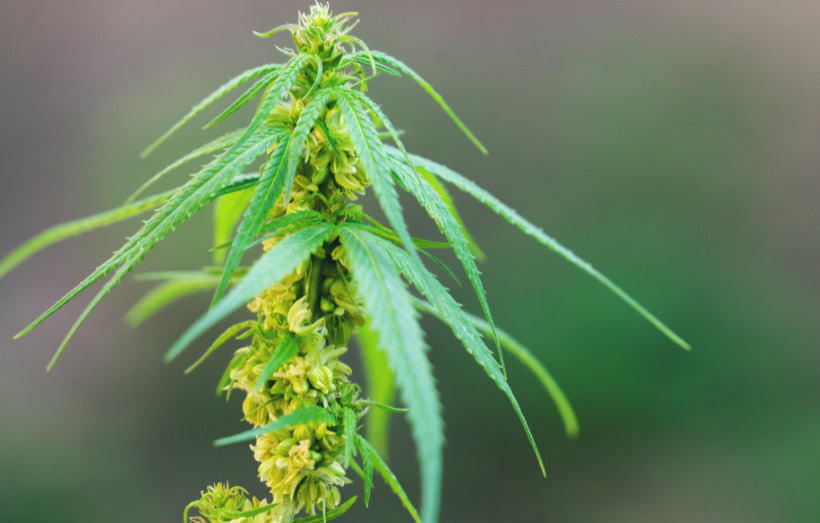As the popularity of CBD oil for pets continues to rise, many pet owners may wonder, Is CBD oil safe for pets? While preliminary research suggests that CBD oil may offer various health benefits for pets, it’s essential to approach this topic with caution and ensure you’re well-informed. Here’s what you need to know, backed by scientific studies, clinical statistics, and expert opinions.
What is CBD oil, and where does it come from?
CBD, or cannabidiol, is a natural compound found in the cannabis plant. It’s essential to understand that the cannabis plant has two primary varieties: marijuana and hemp. These two varieties primarily differ in their tetrahydrocannabinol (THC) content:
- Marijuana: Contains high levels of THC, responsible for the psychoactive effects associated with “getting high.”
- Hemp: Contains minimal THC levels, typically no more than 0.3%. Hemp is primarily used to extract CBD for pets.
CBD oil derived from hemp is considered safer for pets due to its low THC content, which ensures that your pet won’t experience any psychoactive effects.

How Does CBD Oil Work in Pets?
To comprehend how CBD oil impacts pets, it’s essential to understand the underpinnings of a crucial physiological system present in most mammals, known as the endocannabinoid system (ECS). Let’s break this down step-by-step for a clearer understanding.
1. What is the Endocannabinoid System (ECS)?
At its core, the ECS is a complex cell-signaling system. Its primary responsibility is maintaining homeostasis – the body’s internal balance in response to external changes. Imagine it as the body’s internal thermostat, continuously adjusting to keep things stable and optimal.
Components of the ECS:
- Endocannabinoids: These are naturally occurring compounds in the body, similar to cannabinoids found in the cannabis plant. The two key endocannabinoids are anandamide and 2-arachidonoylglycerol (2-AG).
- Receptors: Distributed throughout the body, these receptors bind to endocannabinoids. There are two main types:
1. CB1 receptors, primarily located in the central nervous system.
2. CB2 receptors, are more commonly found in peripheral organs and cells associated with the immune system. - Enzymes: These break down endocannabinoids once they’ve fulfilled their function. Key enzymes include FAAH (breaks down anandamide) and MAGL (breaks down 2-AG).
2. How Does CBD Oil Interact with the ECS?
CBD (cannabidiol) from the oil does not bind directly with CB1 or CB2 receptors as THC (another primary cannabinoid) does. Instead, CBD influences the ECS in more indirect ways:
- Inhibiting Enzymes: By suppressing the action of enzymes like FAAH, CBD can increase the availability of endocannabinoids in the system.
- Altering Receptor Activity: While CBD doesn’t bind strongly with ECS receptors, it may modify the receptors’ ability to bind with other cannabinoids, influencing the overall ECS activity.
3. ECS and Key Physiological Processes:
The ECS plays a role in various processes, including:
- Appetite: Through CB1 receptors, the ECS can influence feeding behavior. This is why, for instance, certain cannabis products in humans can induce “the munchies.”
- Sleep: By regulating circadian rhythms and influencing neurotransmitters related to sleep, the ECS can impact sleep patterns and cycles.
- Pain Response: CB1 and CB2 receptors both play a part in pain perception and inflammation control, which can influence how the body responds to pain stimuli.
- Mood: The ECS has a relationship with neurotransmitters like serotonin and dopamine, both pivotal in mood regulation.
4. How Might CBD Oil Benefit Pets through the ECS?
By interacting with the ECS, CBD oil may have potential therapeutic benefits for pets, such as:
- Pain Management: Through its potential anti-inflammatory effects, CBD might help manage conditions like osteoarthritis.
- Anxiety Reduction: By influencing neurotransmitter activity, CBD might exhibit calming effects, helping pets with anxiety or stress-related issues.
- Appetite Stimulation: If a pet is experiencing reduced appetite, CBD’s interaction with the ECS might help stimulate feeding behavior.
However, it’s imperative to approach these potential benefits with caution. The research on CBD’s precise effects, especially long-term, is still in the nascent stages

What does the research say?
As of now, the research on CBD oil for pets is still in its infancy, and scientific conclusions are limited. However, some studies provide initial insights:
- A study conducted by the University of Kentucky and the College of Veterinary Medicine at Lincoln Memorial University in 2020 observed dogs’ reactions to firework noises both before and after administering CBD oil. Although the dogs given CBD oil showed lower stress hormone levels, their behavioral responses to firework noises remained largely unchanged.
- A 2019 study found differences in CBD oil metabolism between dogs and cats. Dogs absorbed and metabolized CBD oil faster, while some cats in the study exhibited adverse reactions like vomiting and head shaking.

Is CBD oil for pets legal?
CBD oil’s legality for pets varies depending on your location. In North America, while CBD oil products are federally legal, the FDA currently advises against CBD use in animals, considering it illegal as a pet food ingredient in the U.S.
In Canada, both Health Canada and the Canadian Veterinary Medical Association do not endorse administering CBD oil to pets. It’s essential to consult your local regulations and seek advice from a veterinarian before administering CBD oil to your pet.
What precautions should I take with CBD oil for pets?
If you decide to try CBD oil for your pet, consult with a veterinarian first. Start with a small dosage and monitor your pet closely for any adverse reactions. Ensure that the CBD oil is pet-specific, preferably with 0% THC, and avoid products intended for human consumption.

Conclusion
The safety of CBD oil for pets hinges largely on its source. Hemp-derived CBD, with minimal THC, is generally considered safe, while marijuana-derived CBD can be harmful due to high THC levels. As with any treatment, pet owners should consult their veterinarian and select pure, high-quality products. As research progresses, staying informed is key to ensuring the well-being of our pets.
FAQs
What is the difference between pet CBD oil and human CBD oil?
The primary difference between pet and human CBD oil is the concentration of CBD. Pet CBD oil typically has lower concentrations to accommodate the smaller size and different metabolic rate of animals. Additionally, pet CBD oil may have added flavors to make it more palatable to pets.
Why is pet CBD so expensive?
Pet CBD can be expensive due to the extraction methods used, the quality of the hemp, third-party testing, and other production and packaging costs. In addition, specialized formulations and the inclusion of additional beneficial ingredients can add to the cost.
Can you give human CBD oil to cats?
It is not recommended to give human CBD oil to cats without consulting a veterinarian. Human CBD oil may contain higher concentrations of CBD or other ingredients that may not be suitable for pets.
Do vets recommend CBD oil for cats?
Some veterinarians may recommend CBD oil for certain conditions in cats, such as anxiety, pain, or inflammation. However, it is essential to consult your vet to determine the appropriate dosage and formulation for your specific pet’s needs.




































